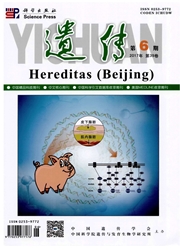

 中文摘要:
中文摘要:
高原肺水肿(High.altitude pulmonary edema,HAPE)是一种特发于高原低氧环境的肺水肿,是遗传和环境因素共同作用的结果。为了寻找与中国汉族高原肺水肿相关的单核苷酸多态性(Single nucleotide polymorphism.SNP)位点及易感基因,文章利用Affymetrix SNPArray6.0芯片,对2010年5月至2012年7月在青海省玉树地区执行援建任务时来自平原地区的40例HAPE患者和33例健康对照进行全基因组SNP分型,通过PLINK软件对芯片结果进行全基因组关联分析(Genome—wide association study,GWAS),筛选出在病例组和对照组中间有显著差异妒〈IOE.7)的SNP位点57个,通过对57个SNP位点附近74个基因进行GO与Pathway富集分析,发现这些基因与“前列腺素代谢”、“四烯酸代谢”、“氮代谢”显著相关(adjustP〈O.05),以上代谢过程与HAPE病理生理机制相关。结果表明,高原肺水肿受遗传多态性影响,与多个基因以及位点相关。
 英文摘要:
英文摘要:
High-altitude pulmonary edema (HAPE) is a non-cardiogenic pulmonary edema that is always found among unacclimatized persons after rapid ascent to high altitude, and HAPE is caused by the interaction of genetic and environ- mental factors. To screen and analyze the susceptibility genes and single nucleotide polymorphisms (SNPs) of H.APE in Han Chinese, the DNA samples of 40 patients with HAPE and 33 healthy controls, who performed the reconstruction tasks from the plain region in Yushu area of Qinghai province during May of 2010 to July of 2012, were scanned by Affymetrix SNP Array 6.0 Chips in this study. Genome-wide association study (GWAS, by PLINK software) was used to screen the susceptibility genes and genetic markers, and a total of 57 SNPs were found to be significantly different between case and control groups (adjust P 〈 0.05). GO and Pathway enrichment analysis of 74 genes around the 57 SNPs indicated that these genes were significantly correlated with prostanoid metabolic process, arachidonic acid metabolism and nitrogen metabo-lism (adjust P 〈 0.05), which were involved in the physiopathologic mechanism of HAPE. Our studies suggest that these genetic polymorphisms and genes were associated with HAPE.
 同期刊论文项目
同期刊论文项目
 同项目期刊论文
同项目期刊论文
 Expression pro fi ling of abundant genes in pulmonary and cardiac muscle tissues of Tibetan Antelope
Expression pro fi ling of abundant genes in pulmonary and cardiac muscle tissues of Tibetan Antelope 期刊信息
期刊信息
